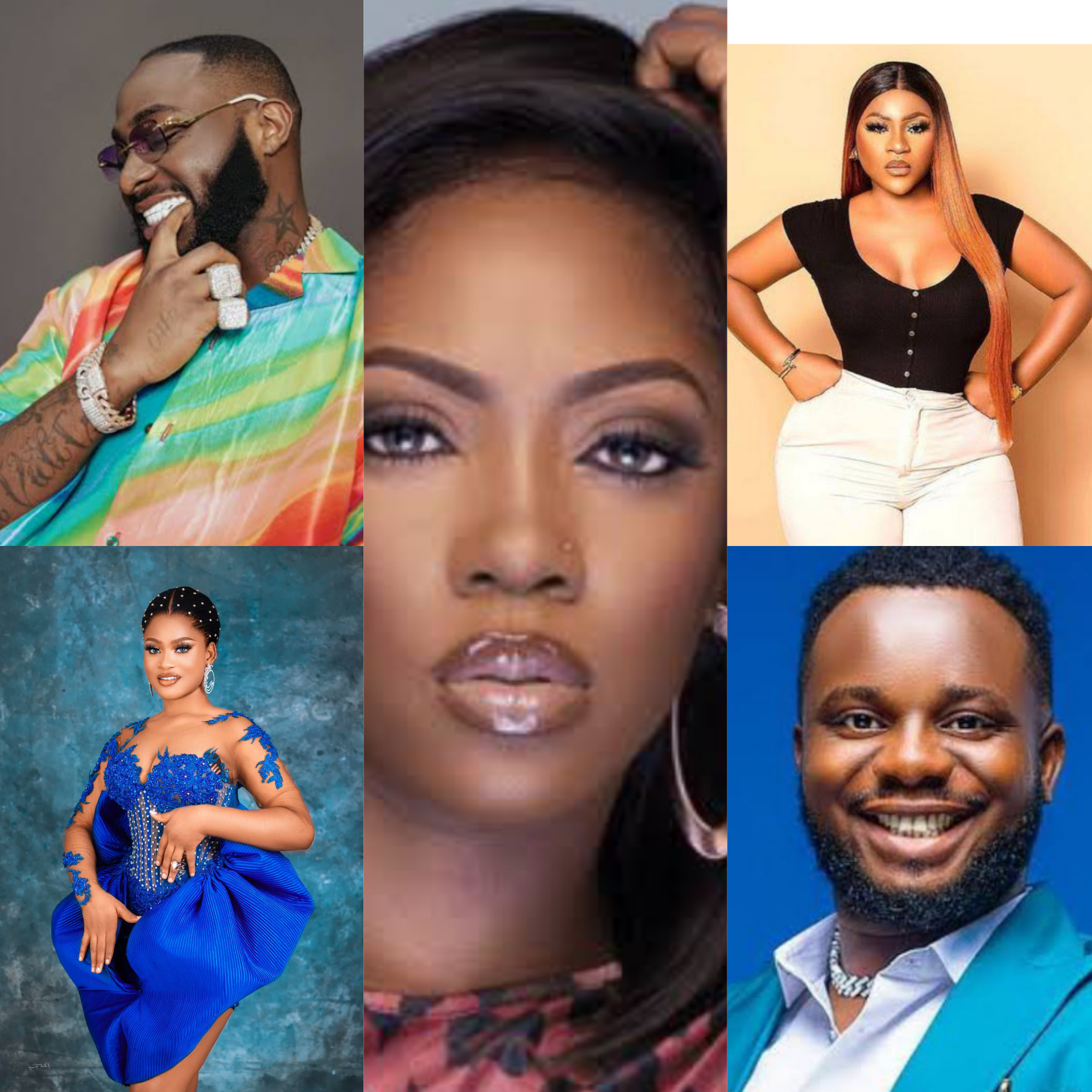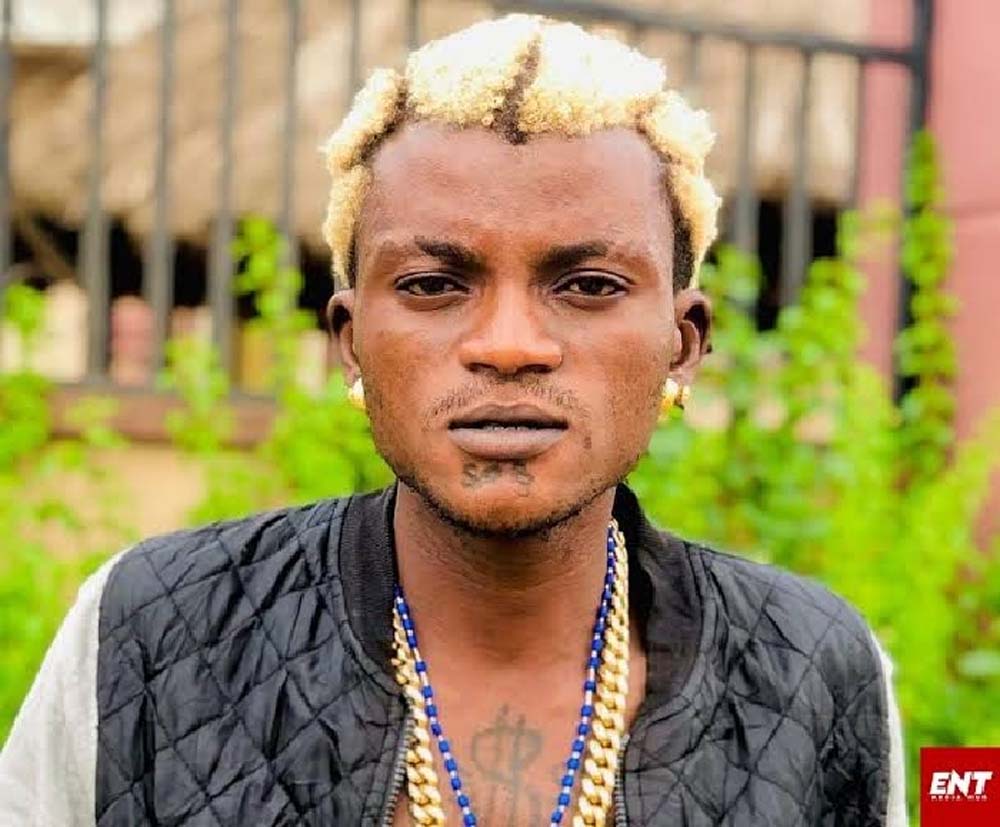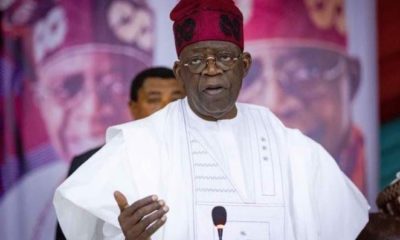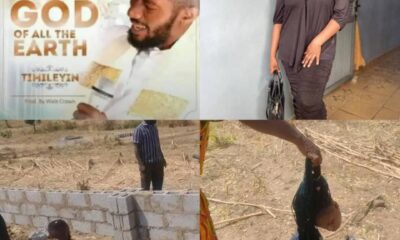Entertainment
The Power of Celebrity Endorsements: Boosting Product Sales in Nigeria

It is no doubt that the Entertainment industry in Nigeria is thriving both within its locality and beyond, as a result, business owners have long gone recognized the fact of utilizing well-known figures to promote their products and services.
Celebrities undoubtedly have undeniable influence on their fans and followers therefore they play a significant role in endorsing products and services.
In this article, we will explore the power of celebrity endorsements in boosting product sales in Nigeria and the impact of celebrity endorsements on the advertising industry.
In Nigeria, where the entertainment industry is booming and celebrities are highly regarded, the use of famous faces to push products has become increasingly popular.
One of the ways celebrities boost products in Nigeria is their massive fan base, Nigerian celebrities have millions of followers on social media platforms such as Instagram, Twitter, and Facebook. Their influence is not limited to social media; they are also frequently featured in popular TV shows, movies, and music videos. By partnering with a celebrity, businesses can tap into this vast audience and increase their brand visibility.
Moreover, celebrities in Nigeria are seen as role models, and people look up to them for inspiration and guidance. Their lifestyle choices, fashion sense, and brand endorsements are closely watched and imitated by their fans. As a result, when a celebrity endorses a product, it is seen as a seal of approval by their followers, and the product is likely to gain credibility and trust in the eyes of consumers.
By associating themselves with a celebrity, businesses can create a sense of exclusivity and luxury around their products. This is particularly important in Nigeria, where status and social hierarchy are highly valued.
As long as this is done correctly, partnering with a celebrity can be an effective marketing strategy for businesses in Nigeria.
Nigerian celebrities are not only popular within the country but also have a significant international following. This means that by partnering with them, businesses can expand their reach beyond Nigeria and tap into new markets. For instance, Nigerian music stars like Davido, Wizkid, and Burna Boy have a massive fan base across Africa, Europe, and the Americas. Their endorsement of a product can help businesses gain visibility in these regions and attract new customers.
While celebrity endorsements can be effective, there are also potential drawbacks to consider. One issue is the high cost of hiring a celebrity, which can be prohibitive for smaller businesses.
There is also the risk that a celebrity may become involved in scandal or controversy, which can damage the reputation of the brand they are endorsing.
Finally, there is the question of authenticity – consumers may question whether a celebrity actually uses or believes in the product they are endorsing, which can erode trust in the brand.
Celebrity endorsements are a common sight in the fashion and beauty industry in Nigeria. Celebrities are often used to endorse beauty products, skincare products, and clothing lines. For example, popular Nigerian actress Genevieve Nnaji has been the face of cosmetics brand Lux for several years, and singer Tiwa Savage has endorsed a number of fashion and beauty brands.
Nigerian celebrities have also been used to endorse food and beverage brands. For instance, popular singer Davido was recently announced as a brand ambassador for a popular soft drink in Nigeria. Similarly, Nollywood actress Mercy Johnson has been the face of a food seasoning brand for several years.
With the growing popularity of online gambling in Nigeria, celebrities are being used to endorse various gambling websites, including top Bitcoin casinos as well as different ponzi scheme.
Trust and credibility are essential in advertising, especially in a market like Nigeria where scams are prevalent. Celebrity endorsements can help build trust in a product or brand by leveraging the trust and credibility already established by the celebrity. Consumers are more likely to trust a product or brand endorsed by a celebrity they admire or respect.
Entertainment
Portable Remanded In Kwara Prison For Failing To Meet Bail Terms

Controversial street-hop singer, Okikiola Badmus, better known by his stage name Portable, has been remanded at the Oke Kura Correctional Centre in Ilorin, Kwara State, after failing to meet the bail terms set by an Upper Area Court.
The singer was arraigned on Monday following allegations of defamation filed against him by veteran Fuji star, Akorede Saheed, popularly known as Saheed Osupa.
Although the court approved bail for Portable in the sum of N1 million, the conditions attached proved difficult for the singer to meet immediately.
READ ALSO: JUST IN: Court Grants Singer Portable ₦1m Bail Over Criminal Charges
The court stipulated that he must produce two sureties in like sum — one of whom must be “either the Chairman or Secretary of the Performing Musicians Association of Nigeria,” while the second must be “a property owner within a Government Reserved Area in Ilorin, supported by a valid Certificate of Occupancy.”
More to follow……….
Entertainment
‘Nigeria Jaga Jaga’ Will Remain Unofficial National Anthem Until Change Happens – Eedris Abdulkareem
Renowned Nigerian rapper and activist Eedris Abdulkareem has boldly asserted that his 2001 protest anthem Nigeria Jaga Jaga will continue to serve as Nigeria’s unofficial second national anthem, insisting it will remain so until the country addresses the systemic issues it critiques.
Abdulkareem, famed for his fearless criticism of corruption and social injustices, made these remarks in a recent interview with Channels TV.
The song, which has seen a resurgence in popularity on platforms like TikTok, was groundbreaking for its uncompromising portrayal of Nigeria’s governmental failures, rampant corruption, and decaying infrastructure.
READ MORE: Rapper Eedris Abdulkareem Drops New Single ‘THANK YOU‘
Abdulkareem declared, “Nigeria Jaga Jaga will continue to be the second national anthem, whether anybody likes it or not. But I always pray to wake up one day and find the song is no longer relevant. That would make me very happy.”
Released nearly a quarter of a century ago, Nigeria Jaga Jaga caused a national stir with its sharp criticism of the nation’s political and economic decay.
Even though the song faced government bans and significant backlash at the time, it has stood the test of time, resonating with generations of Nigerians who continue to grapple with the same issues.
Abdulkareem expressed regret that the song’s message remains as relevant today as it was when it was first released: “Until we see real development—constant electricity, security, and good leadership—Nigeria Jaga Jaga will remain relevant. Sadly, 24 years later, the message of the song is still our reality.”
Aside from revisiting his iconic hit, Abdulkareem also addressed the controversy surrounding his latest track, Tell Your Papa. The song, which was recently banned by the Nigerian Broadcasting Commission (NBC) and marked “Not to be Broadcast” (NTB), has ignited a fresh debate on the state of censorship and freedom of expression in Nigerian music.
Many believe that Tell Your Papa is a direct rebuttal to a viral video in which Seyi Tinubu, the son of President Bola Ahmed Tinubu, passionately defended his father’s administration.
Abdulkareem explained his motivation behind the song, revealing, “I was inspired by Seyi Tinubu. In the video, he kept repeating, ‘My father is the greatest president.’ But I differ. He may be the best father to Seyi, but he’s the worst president to Nigerians.”
The rapper went on to criticize the current administration for its failure to address Nigeria’s economic challenges, insecurity, and widespread youth unemployment.
Abdulkareem contrasted the privileged life of Seyi Tinubu with the struggles faced by everyday Nigerians, saying, “I told him to travel by road without security and feel the pain of the people.
Nigerian youths are asking for basic things—electricity, security, job opportunities—not palliatives.”
Despite the ban, Abdulkareem maintained that his song was not an insult but a truthful commentary on the country’s leadership.
“If you listen carefully, there’s nowhere in the song that I insult him. I just stated the truth. He spoke publicly, so I responded publicly. If he had remained silent, I wouldn’t have recorded the song,” Abdulkareem clarified.
Drawing comparisons to the legendary Afrobeat musician Fela Kuti, Abdulkareem emphasized that his criticism comes from a deep love for Nigeria.
“I’m a passionate Nigerian. I love this country deeply. But truth is bitter, and those in power don’t like hearing it,” he said. “I want a better Nigeria, and I’ll keep speaking out until we see real change.”
Entertainment
JUST IN: Court Grants Singer Portable ₦1m Bail Over Criminal Charges
An Upper Area Court sitting in Ilorin, Kwara State, has granted bail to controversial Nigerian singer, Okikiola Badmus, popularly known as Portable, in the sum of ₦1 million.
Portable was arraigned before the court on Sunday on charges bordering on criminal defamation, intimidation, inciting public disturbance, and cyberstalking.
Ruling on his bail application, the court ordered that the singer must produce two sureties in like sum.
READ ALSO: I Want To Fight Anthony Joshua – Portable
One of the sureties is required to be either the Chairman or Secretary of the Performing Musicians Association of Nigeria (PMAN), while the other must own a landed property within a Government Reserved Area (GRA) and present a valid Certificate of Occupancy as proof.
The court has adjourned the case, with further proceedings expected to continue in the coming days.
Details later…

















